Scientific Advisory Council.
The conscientious and committed members of the Scientific Advisory Council are widely regarded as the most accomplished thought leaders in the field of cancer cell and gene therapy. The vision and value they bring to the funding process cannot be overstated and is another factor that distinguishes Alliance for Cancer Gene Therapy from many other funding agencies.
Michael T. Lotze, MD
Scientific Advisory Council Chair
University of Pittsburgh Hillman Cancer Center
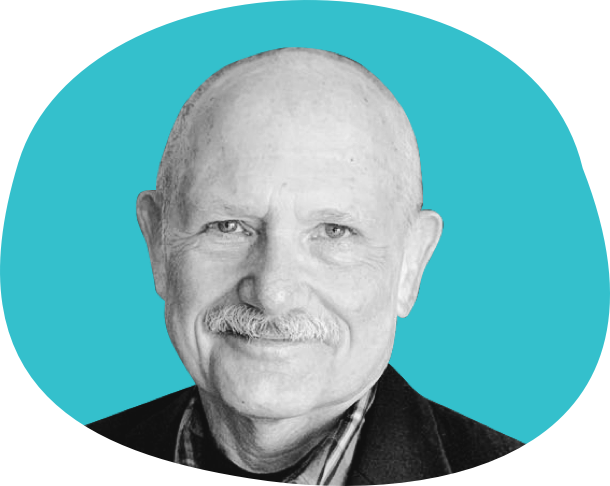
Michael T. Lotze, MD, is professor of surgery, immunology and bioengineering at the University of Pittsburgh School of Medicine. Dr. Lotze received his MD and PhD degrees from Northwestern University. Except for a two-year period at GlaxoSmithKline, King of Prussia, PA, and a dozen years on the senior staff at the National Cancer Institute in Bethesda, MD, Dr. Lotze has done his work at the University of Pittsburgh.
Dr. Lotze serves as associate editor of the Journal of Immunotherapy and Oncology and in 2024 became the editor in chief of the Society for Immunotherapy of Cancer’s official journal, the Journal of ImmunoTherapy of Cancer. He initiated the first approved gene therapy protocols at the NIH and has treated more than 100 patients on gene therapy protocols at the University of Pittsburgh. He is the co-inventor of 10 patents in dendritic cell vaccines and antigen discovery, and author of more than 500 scientific papers and chapters in basic and applied tumor immunology and cytokine biology.
Currently, Dr. Lotze is the leader in the area of exploring cancer as a disorder of cell death and is devising novel strategies to approach the disease in this context.
Stuart A. Aaronson, MD
Icahn School of Medicine at Mount Sinai
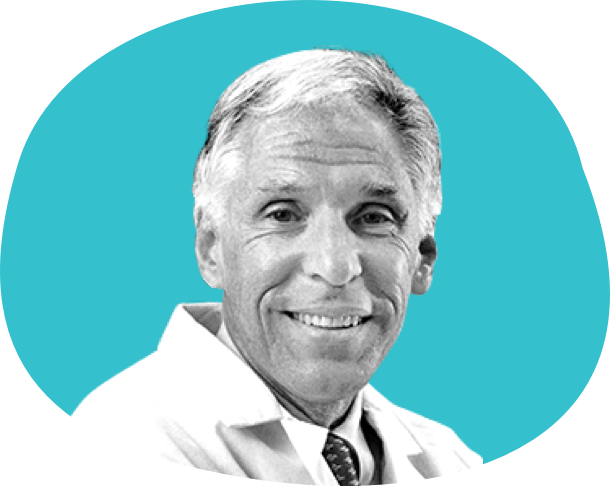
Stuart A. Aaronson, MD, is a cancer biologist who has made seminal contributions in the fields of oncogenes and growth factor signaling. His contributions include the discovery of the first normal function of an oncogene; the identification of erbB2 as an amplified oncogene in human breast cancer; and the identification of KGF (FGF7), an epithelial cell specific growth factor. He also developed stable expression cDNA cloning technology, which has led to the discovery of a number of novel genes with transforming properties.
Dr. Aaronson’s discoveries paved the way for the development of targeted therapies for cancer patients. He previously served as chief, laboratory of cellular and molecular biology at the National Cancer Institute (1977-1993).
He is the author of more than 530 publications and the recipient of numerous awards, including the Distinguished Service Medal from the U.S. Public Health Service, Rhoads Memorial Award from the American Association of Cancer Research and the Paul Erhlich Prize from Germany.
Nduka Amankulor, MD
University of Pennsylvania, Abramson Cancer Center

Nduka Amankulor, MD, serves as Chief of Neurosurgical Oncology and Director of the Penn Brain Tumor Center at University of Pennsylvania.
Dr. Amankulor earned his medical degree from the Yale University School of Medicine and subsequently completed his residency in neurosurgery at Yale New Haven Hospital. He completed a postdoctoral fellowship in cancer and genetics biology, as well as a fellowship in neurosurgical oncology at Memorial Sloan-Kettering Cancer Center in New York. Most recently, Dr. Amankulor served as Director of Neurosurgical Oncology at the University of Pittsburgh School of Medicine.
Dr. Amankulor’s clinical practice focuses on primary and metastatic brain tumors, as well as spine, intraventricular and skull base tumors, and hydrocephalus. He uses the latest research and treatment options, such as Neuroendoport® surgery and fluorescence-based surgeries, to provide personalized treatment that creates optimal outcomes. In addition to his clinical practice, Dr. Amankulor is a leading cancer immunobiologist whose laboratory has performed groundbreaking studies on mechanisms of immune dysfunction in glioblastoma, the most aggressive form of brain cancer. His research has been supported by the National Institutes of Health.
Dr. Amankulor sees patients at the Perelman Center for Advanced Medicine.
John C. Bell, PhD
Ottawa Hospital Research Institute
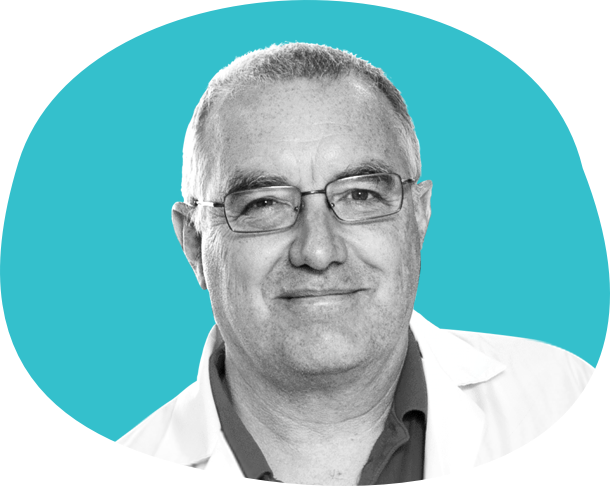
John C. Bell, PhD, is senior scientist at the Ottawa Hospital Research Institute Centre for Innovative Cancer Research and professor in the University of Ottawa Departments of Medicine and Biochemistry, Microbiology and Immunology.
At the University of Ottawa, Dr. Bell leads the Canadian Oncolytic Virus Consortium, a Terry Fox funded group from across Canada that is developing virus-based cancer therapeutics. At the Ottawa Hospital Cancer Center, he is a member of the Center for Cancer Therapeutics. He also serves as director of the Biotherapeutics Program for the Ontario Institute for Cancer Research; scientific director of the National Centre of Excellence for the development of Biotherapeutics for Cancer Therapy; and is a fellow of the Royal Society of Canada.
Dr. Bell received his PhD from McMaster University in 1982. The three years that followed, he trained as a post-doctoral fellow at the University of Ottawa and then at the Medical Research Council in London, England. Dr. Bell began his independent research career at McGill University in 1986 and moved to the University of Ottawa Department of Medicine in 1989.
Christine Brown, PhD
City of Hope

Christine Brown, PhD, is a faculty member in the Department of Hematology and Hematopoietic Cell Transplantation and the Department of Immuno-Oncology at City of Hope.
As deputy director of the T Cell Therapeutics Research Laboratory, Dr. Brown, the Heritage Provider Network Professor in Immunotherapy, provides scientific oversight for the preclinical research program, as well as the ongoing clinical trial program focused on the development of CAR-engineered T cells for the treatment of hematological malignancies and solid tumors. Dr. Brown’s personal research efforts are focused on developing and refining redirected CAR T cells for the treatment of malignant brain tumors.
Dr. Brown received her PhD from University of California, Berkeley and was a Leukemia and Lymphoma Scholar during her postdoctoral fellowship at Pennsylvania State University. Her scientific contributions to the development and optimization of tumor-specific CAR T cells for the treatment of glioblastoma are supported by the California Institute for Regenerative Medicine and are the basis of an ongoing phase I clinical trial supported by Gateway for Cancer Research and R01 FD005129.
E. Antonio Chiocca, MD, PhD
Brigham and Women’s Hospital

The work of E. Antonio Chiocca, MD, PhD, is focused on developing novel genetic therapies for malignant brain tumors by engineering viruses that can kill tumor cells without affecting normal brain cells. Dr. Chiocca’s laboratory is combining this research with novel pharmacological and immunotherapeutic approaches for brain cancer.
Currently, Dr. Chiocca is enrolling patients in a clinical trial using an oncolytic herpes simplex virus type 1 from which scientists have removed or modified pieces to stop it from replicating in normal cells, but not in tumor cells. Dr. Chiocca’s lab is also studying gene, viral and immunotherapy of brain tumors, how to circumvent the host responses that limit the efficacy of novel engineered viruses that target gliomas, as well as how to stimulate the antitumor immune response.
Recently Dr. Chiocca identified a potential setback to the use of this treatment. He found that natural killer cells (NK cells), a type of white blood cell that targets viruses and sometimes tumors within the body, attack the virus-infected cells, making the treatment much less effective. Dr. Chiocca has identified the specific receptors that allow the NK cells to impede the virotherapy and is looking for ways to prevent this so the treatment can work to its full potential and be the most effective.
Dr. Chiocca completed medical school at The University of Texas Houston and his residency in neurological surgery at Massachusetts General Hospital. In 2007, Dr. Chiocca received an ACGT Clinical Translation Award.
Mitchell H. Finer, PhD
MPM Capital, ElevateBio

Mitchell (Mitch) Finer, PhD, is the chief scientific officer of ElevateBio and president of ElevateBio BaseCamp. He has been instrumental in founding, building and leading a number of MPM Capital portfolio companies. He founded and is the former CEO of Oncorus, focused on the development of oncolytic herpes viruses for the treatment of solid tumors. He is also a founder and the former CEO of CODA Biotherapeutics, focused on developing a chemogenetic neuromodulation platform for the treatment of severe neurological disorders. Dr. Finer serves on several MPM Capital portfolio company boards, including CODA, Oncorus, Semma Therapeutics and TCR2 Therapeutics.
For three decades, Dr. Finer has focused on drug development, utilizing the novel platforms of cell and gene therapy, cancer immunotherapy and regenerative medicine, and he has held several senior leadership roles in companies developing these therapies.
Prior to joining MPM Capital, Dr. Finer was the CSO of bluebird bio. He also served as CEO of Intracel Corporation and Genteric, vice president research for Cell Genesys and the Gencell division of Aventis Pharma (now Sanofi) and senior vice president of development at Novacell (now Viacyte). He also successfully co-founded the retinal disease gene therapy company Avalanche Biotechnologies (now Adverum Biotechnologies) where he serves as a member of the board of directors.
Dr. Finer has been named inventor on 15 issued U.S. patents. He received his PhD in biochemistry and molecular biology from Harvard University and a BS in biochemistry and microbiology from the University of California, Berkeley. He completed a post-doctoral fellowship at the Whitehead Institute for Biomedical Research at the Massachusetts Institute of Technology.
Joseph C. Glorioso, III, PhD
Past Council Chair
University of Pittsburgh Hillman Cancer Center

Joseph C. Glorioso, III, PhD, is emeritus chair of the University of Pittsburgh Medical School Department of Microbiology and Molecular Genetics, having served as chair for 20 years.
He is the founding editor for Gene Therapy and served in that position for 20 years. He also is a founding member and former president of the American Society of Gene and Cell Therapy and former president of the Department Chairs of the US Medical School Microbiology and Immunology Departments. He is a fellow of the American Society for Microbiology (ASM) and the American Association for the Advancement of Science (AAAS). He has had an active NIH-supported research program for 40 years and has been an active NIH Study Section member for several decades. Dr. Glorioso also co-founded and is chair of the Scientific Advisory Boards of Oncorus Inc. Cambridge, MA; and Coda Biotherapeutics, San Francisco, CA.
Dr. Glorioso’s contributions to science include defining antiviral immune responses to herpes simplex virus (HSV) infection, the genetics of HSV pathogenesis and latency, and mechanisms of HSV infection. He has pioneered the design and application of HSV gene vectors for the treatment of nervous system diseases such as peripheral neuropathies, chronic pain, and brain tumors. He continues to be a worldwide leader in the HSV gene vector field through the creation of innovative gene delivery technologies and the development of manufacturing methods for application of HSV vectors in human clinical trials.
Stephen Gottschalk, MD
St. Jude Children’s Research Hospital
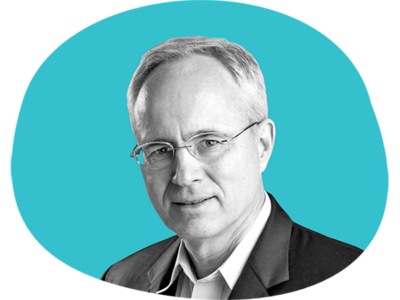
Stephen Gottschalk, MD, is chair of Bone Marrow Transplantation and Cellular Therapy at St. Jude Children’s Research Hospital in Memphis, Tennessee.
Dr. Gottschalk also serves as a Co-Director of the Center of Excellence for Pediatric Immuno-Oncology and as an Endowed Chair in Bone Marrow Transplantation & Cellular Therapy.
Dr. Gottschalk actively conducts investigator-initiated early-phase clinical studies and, in the laboratory, oversees a team of MD and PhD researchers on peer-reviewed projects aimed at overcoming current limitations of adoptive cell therapies for cancer. He co-leads the translational immuno-oncology and immunotherapy initiative at St. Jude and is committed to training the next generation of scientists and academic physicians.
Dr. Gottschalk earned his MD at Georg-August University in his native Germany before moving to the United States and completing a pediatric residency at Baylor University. He became an ACGT Research Fellow in 2019 for a study on cell therapy in sarcoma and is engaged in an ACGT-funded cross-institution collaboration on synthetic T-cell therapy for recurrent pediatric brain tumors, specifically medulloblastoma and ependymoma.
Carl H. June, MD
University of Pennsylvania Abramson Cancer Center

At the University of Pennsylvania, Carl H. June, MD, is the Richard W. Vague Professor in Immunotherapy in the Department of Pathology and Laboratory Medicine; director of the Center for Cellular Immunotherapies at the Perelman School of Medicine; and director of the Parker Institute for Cancer Immunotherapy. He also directs a research laboratory that studies various mechanisms of lymphocyte activation that relate to immune tolerance and adoptive immunotherapy for cancer and chronic infection.
In 2011, Dr. June and his research team published findings detailing a new therapy in which patients with refractory and relapsed chronic lymphocytic leukemia were treated with genetically engineered versions of their own T cells. The treatment has now also been used with promising results to treat children with refractory acute lymphoblastic leukemia.
Dr. June has published more than 350 manuscripts and is the recipient of numerous prizes and honors, including election to the Institute of Medicine in 2012 and the American Academy of Arts and Sciences in 2014, William B. Coley Award, Richard V. Smalley Memorial Award from the Society for Immunotherapy of Cancer, AACR-CRI Lloyd J. Old Award in Cancer Immunology, Philadelphia Award in 2012, Taubman Prize for Excellence in Translational Medical Science in 2014 (shared with S. Grupp, B. Levine and D. Porter), Paul Ehrlich and Ludwig Darmstaedter Prize (shared with J. Allison), Novartis Prize in Immunology (shared with Z. Eshaar and S. Rosenberg), Karl Landsteiner Memorial Award, Debrecen Award and a Lifetime Achievement Award from the Leukemia and Lymphoma Society. Dr. June received the Alliance for Cancer Gene Therapy’s Edward Netter Leadership Award in 2019. In 2022, Dr. June received the Keio Medical Science Prize, which is awarded by Japan’s oldest private university, Keio University.
Dr. June is a graduate of the Naval Academy in Annapolis and Baylor College of Medicine in Houston. He had graduate training in Immunology and malaria with Dr. Paul-Henri Lambert at the World Health Organization in Geneva, Switzerland, from 1978 to 1979 and post-doctoral training in transplantation biology with E. Donnell Thomas and John Hansen at the Fred Hutchinson Cancer Research Center in Seattle from 1983 to 1986. Dr. June is board certified in Internal Medicine and Medical Oncology.
Noriyuki Kasahara, MD, PhD
Chief Scientific Advisor at 4D Molecular Therapeutics (4DMT)
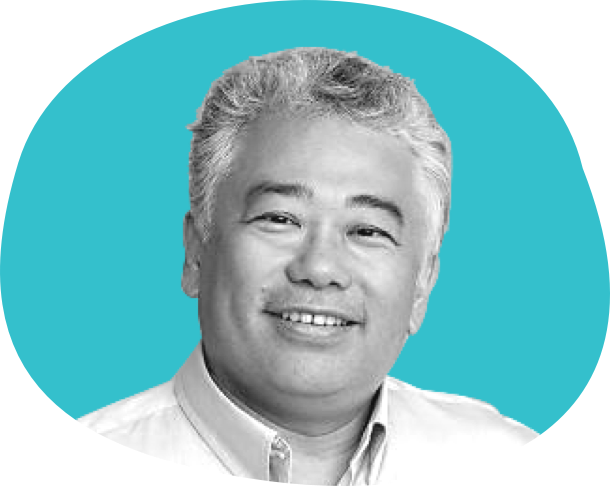
Noriyuki Kasahara, MD, PhD, is Chief Scientific Advisor at 4D Molecular Therapeutics (4DMT) and adjunct Professor at UCSF in the Departments of Neurological Surgery and Radiation Oncology.
Previously Dr. Kasahara was a professor of cell biology and pathology at the University of Miami and served as co-Leader of the Viral Oncology Program at the Sylvester Comprehensive Cancer Center. Other past positions include professor of medicine and molecular pharmacology at the University of California, Los Angeles (UCLA) where he was director of the UCLA Vector Core and Shared Resource facility at the Jonsson Comprehensive Cancer Center for more than a decade. He also established and directed vector core facilities as a faculty member at the University of Southern California.
Dr. Kasahara has more than 30 years of experience and has authored more than 140 peer-reviewed articles in the fields of gene therapy and genetic engineering. He pioneered the development of tumor-selective retroviral replicating vectors (RRV) for gene therapy of cancer, including first-in-human multi-center clinical trials sponsored by Tocagen Inc.
Dr. Kasahara serves on the Board of Directors of the Japan Society of Gene & Cell Therapy (JSGCT), and the Global Outreach Committee for the American Society of Gene & Cell Therapy (ASGCT) and is a past president of the International Society for Cell and Gene Therapy of Cancer.
He is a member of the Scientific Advisory Boards of Tocagen Inc., POC Medical Systems Inc., the Mendez National Institute of Transplantation Foundation, GenVivo Inc., GeneMedicine Inc., and Klotho Therapeutics Inc.
Dr. Kasahara trained with Professor Y. W. Kan at UCSF, a pioneer in the field of genetic diagnostics and recipient of the Lasker Award.
Crystal L. Mackall, MD
Stanford University
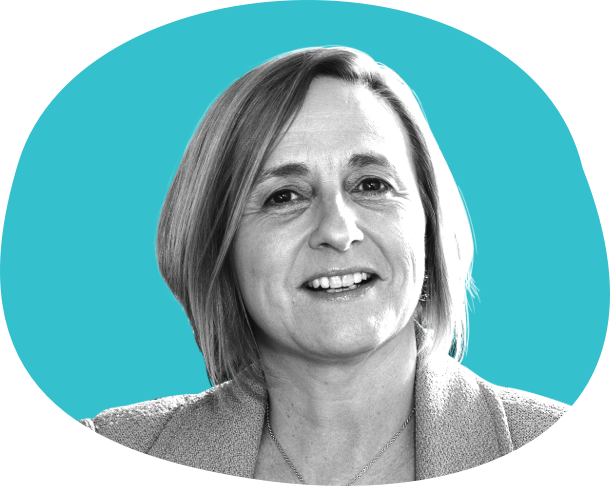
Crystal L. Mackall, MD, is the Ernest and Amelia Gallo Family Professor of Pediatrics and Internal Medicine at Stanford University. She serves as founding director of the Stanford Center for Cancer Cell Therapy, associate director of Stanford Cancer Institute, leader of the Cancer Immunology and Immunotherapy Program and director of the Parker Institute for Cancer Immunotherapy at Stanford.
During a 27-year tenure culminating as chief of the Pediatric Oncology Branch, NCI and now through the Mackall Lab at Stanford, she has led an internationally recognized translational research program focused on immunooncology. She has conducted numerous early phase and first-in-human and first-in-child clinical trials spanning dendritic cell vaccines, cytokines and adoptive immunotherapy using NK cells and genetically modified T cells.
Dr. Mackall’s work is credited with identifying an essential role for the thymus in human T cell regeneration and discovering IL-7 as the master regulator of T cell homeostasis. Her group was among the first to demonstrate impressive activity of CD19-CAR in pediatric leukemia, developed a novel CD22-CAR with impressive activity in leukemia and lymphoma refractory to CD19 targeting, and is leading exciting work focusing on CAR T cell therapy for brain tumors. Her group has identified T cell exhaustion as a major feature limiting the activity of CAR T cells. Recently, Dr. Mackall’s group has developed novel approaches to prevent and reverse human T cell exhaustion. Her clinical trials are notable for incorporation of deep biologic endpoints that further our understanding of the basis for success and failure of novel immunotherapeutics.
Dr. Mackall is the recipient of numerous awards and is a member of the American Society of Clinical Investigation, the National Academy of Medicine, and the American Academy of Physicians. She serves in numerous national leadership positions, including co-PI on the NCI Pediatric Cancer Immunotherapy Network (U54), leader of the NCI Pediatric Cancer Immunotherapy Trials Network, and co-leader of the St. Baldrick’s-StandUp2Cancer Pediatric Dream Team. She is board certified in pediatrics, pediatric hematology-oncology and internal medicine. In 2022, Dr. Mackall received the Sarcoma Foundation of America’s Nobility in Science Award.
Alexander Marson, MD, PhD
Director of the Gladstone-UCSF Institute of Genomic Immunology
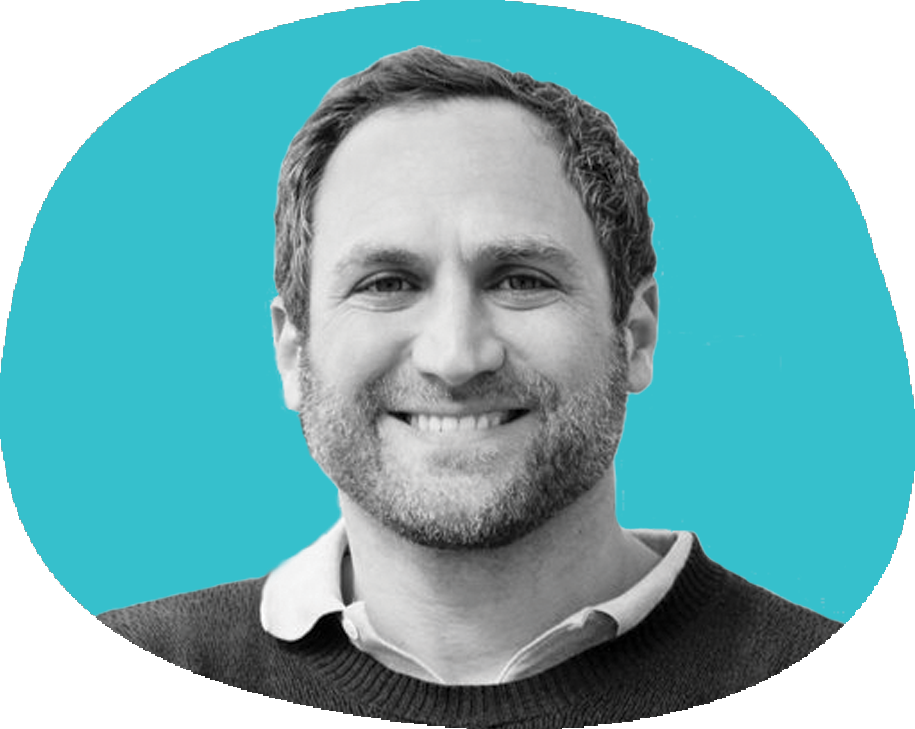
Alex Marson, MD, PhD is Director of the Gladstone-UCSF Institute of Genomic Immunology and Professor in the UCSF Department of Medicine, Division of Infectious Diseases. He serves as the scientific director for Human Health at the Innovative Genomics Institute and is a member of the Parker Institute for Cancer Immunotherapy. Dr. Marson’s work aims to understand the genetic programs controlling human immune cell function in health and disease, with an emphasis on developing and applying CRISPR genome engineering tools to primary immune cells, especially T cells. Combining genomics and gene editing approaches, the lab works to assess the consequences of coding and noncoding genetic variation on immune cell function and autoimmune disease risk and to genetically engineer human immune cells to target cancer, autoimmunity, and infectious diseases.
Dr. Marson completed medical school at Harvard, his PhD training at the Whitehead Institute/MIT with Richard Young and Rudolf Jaenisch, an Internal Medicine residency at the Brigham and Women’s and clinical training in Infectious Diseases at UCSF.
Ira Mellman, PhD
Chief Scientific Officer and Co-Founder, Medici Therapeutics, President of Research at the Parker Institute for Cancer Immunotherapy (PICI).
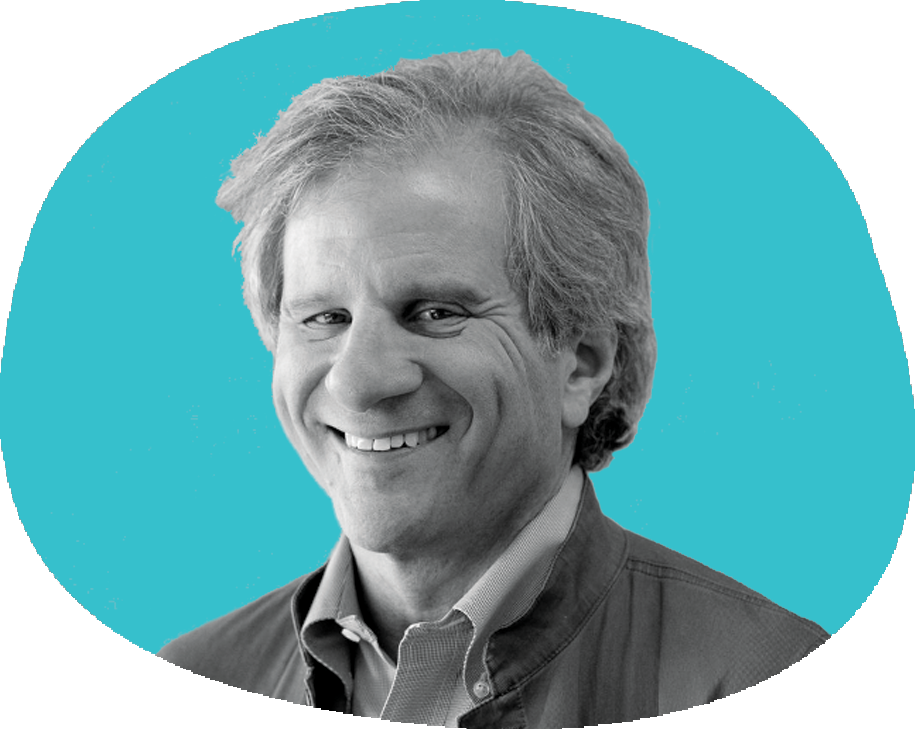
Ira Mellman, PhD is currently the co-founder and CSO of Medici Therapeutics and President of Research at the Parker Institute for Cancer Immunotherapy (PICI). Previously, Dr. Mellman ran all of oncology research at Genentech from 2007 – 2014 and was then Vice President of Cancer Immunology at Genentech from 2014 – 2024, following 20 years as a faculty member at the Yale University School of Medicine, where he was chair of his department, a member of the Ludwig Institute for Cancer Research, scientific director of the Yale Cancer Center, and Sterling Professor of Cell Biology and Immunobiology.
Dr. Mellman has an AB from Oberlin College & Conservatory and a PhD in Genetics from Yale and was a Fellow at the Rockefeller University with Ralph Steinman. Dr. Mellman’s laboratory is known not only for advances in fundamental cell biology in the area of membrane traffic (notably, the discovery of endosomes) and for applying these insights to understanding the cellular basis of the immune response.
Of particular importance to cancer immunotherapy has been his pioneering contributions to elucidating how dendritic cells initiate immunity or maintain immune tolerance. Recently, his group turned to elucidating how T cell signaling is regulated by immune checkpoints, and how personalized cancer vaccines and cell-based therapies can be used to enhance anti-tumor T cell responses. Dr. Mellman’s group was responsible for having brought Genentech’s anti-PD-L1 antibody, Tecentriq® (atezolizumab), to the clinic, an approved blockbuster drug for a variety of indications.
Dr. Mellman also oversaw the initial discovery or early development of Genentech’s cancer vaccine programs directed against patient-specific mutant neo-antigens using mRNA (in collaboration with BioNTech) and DNA (in collaboration with Nykode) based platforms, tiragolumab (anti-TIGIT, now in pivotal trials), Cotellic® (MEK inhibitor cobimetinib), Lunsumio® (mosunetuzumab, anti-CD20/CD3 bispecific), and Polivy® (anti-CD79b ADC).
Dr. Mellman is a member of the US National Academy of Sciences, American Academy of Arts & Sciences, the European Molecular Biology Organization, a Fellow of the Academy of the American Association for Cancer Research (AACR), and the former Editor in Chief of the Journal of Cell Biology. He has also served on the editorial boards of Cell, the Journal of Experimental Medicine, EMBO Journal, OncoImmunology among others, and is the recipient of many named lectureships, honorary professorships, and awards, including Yale University’s Wilbur Cross medal, the Peter Dougherty Lecture at St. Jude’s, and the Lloyd J. Old Award for Cancer Immunotherapy (from the AACR). He has also served on the boards of AACR, SITC, the ASCB, the Melanoma Research Foundation, and the Cancer Research Institute.
Shari Pilon-Thomas, PhD
Moffitt Cancer Center

Shari Pilon-Thomas, PhD, is a Senior Member of the Immunology Department at Moffitt Cancer Center in Tampa, FL. She is currently the Co-Director of the Center for Immunization and Infection Research in Cancer.
She received her PhD in Immunology/Microbiology from Wayne State University in Detroit, MI, and completed her postdoctoral fellowship in the Department of Surgery, Tumor Immunology, Immunotherapy from the University of Michigan in Ann Arbor. Her research focuses on the advancement of immunotherapy, specifically vaccine-based approaches and adoptive T-cell therapy for a wide variety of solid tumors.
Dr. Pilon-Thomas’ research program is one of the leading efforts in bridging the space between basic science and clinical immunotherapy trials for patients with solid tumors. She has spearheaded the optimization of tumor-infiltrating lymphocyte (TIL) expansion protocols and translation of TIL therapy at Moffitt Cancer Center. She develops immunotherapeutic treatment strategies in murine models and collaborates with clinicians to develop clinical trial protocols based on her laboratory research. Her collaborations have resulted in TIL-based trials for patients with melanoma, sarcoma, bladder cancer, H&N squamous cell carcinoma, and cervical cancer. Her lab leads the immune monitoring effort on these trials for the measurement of suppressive factors and tumor-specific immune responses, results of which inform subsequent trial design.
Katy Rezvani, MD, PhD
The University of Texas MD Anderson Cancer Center

Katy Rezvani, MD, PhD, is a professor at the University of Texas MD Anderson Cancer Center, where she is the Sally Cooper Murray Endowed Chair in Cancer Research, a professor of medicine, the Chief of the Section of Cellular Therapy in the Department of Stem Cell Transplant and Cellular Therapy, Executive Director of the Adoptive Cell Therapy Platform, and Director of Translational Research and Medical Director of the MD Anderson GMP and Cell Therapy Laboratory.
Her lab studies the role of natural-killer (NK) cells in mediating immunity against glioblastoma as well as other solid tumors and seeks to understand the mechanisms of tumor-induced NK cell dysfunction. The goal of her research is to develop strategies for genetically engineering NK cells to enhance their in-vivo anti-tumor activity and persistence.
Her laboratory has extensive experience in multi-parameter flow cytometry, CyTOF, xenogenic NSG mouse models of human cancer, and various molecular biology techniques. She leads the NK immunotherapy program at MD Anderson and translates multiple innovative strategies from bench to bedside, including a first-in-human trial of CAR NK cells in patients with lymphoid malignancies.
She serves as the leader of the Stem Cell Transplantation and Cellular Therapy Program of the MD Anderson Cancer Center Support Grant. She has served as co-PI for the Cancer Medicine Fellowship T32 program at MD Anderson Cancer Center since 2018 and as a CPRIT TRIUMPH faculty mentor since 2019. She has had 19 trainees in her laboratory. Thirteen of her former trainees hold faculty positions at academic institutions. She has also served on the mentoring committees of multiple junior faculty members and the thesis committees of numerous PhD students.
Isabelle Rivière, PhD
Vice President, Head of Oncology Cell Therapy Technologies and Product Engine at Takeda

Isabelle Rivière, PhD is Vice President, Head of Oncology Cell Therapy Technologies and Product Engine at Takeda. She is a leader in cell therapy and cell engineering with 25+ years of experience in developing and advancing cell therapy drug candidates from pre-clinical stage to phase I/II clinical trials and in building strong collaborations between academia and industry partners (including CAR T cells, CD34+ hematopoietic cells, dendritic cells, embryonic stem cells and iPS cells). She joined Memorial Sloan-Kettering Cancer Center in 1999 where she focused on the development of novel strategies for cell and immunotherapies. Her laboratory at MSKCC investigated genetic approaches to enhance/correct various cell types, including T cells and stem cells, for the treatment of cancers and genetic hematological disorders. Over the past 20 years, she has designed and implemented multiple cell bioproduction processes for several Phase I/II clinical trials. Her laboratory has initiated several clinical trials based on CAR-T cells for the treatment of hematological malignancies and solid tumors. She also studies the immunological functions of CAR-T cells in clinical trials and animal models. Dr. Rivière joined Takeda in 2023.
Dr. Rivière received her PhD in cellular and molecular biology from the University of Paris. She began her graduate studies at the Institut Curie in Paris and completed her thesis at the Whitehead Institute in Cambridge, MA.
Stephen J. Russell, MD, PhD
Vyriad and Mayo Clinic Cancer Center

Stephen J. Russell, MD, PhD is a world-renowned researcher in the field of gene and virus therapy. He combines more than three decades of leadership as a clinician and researcher with extensive experience in all aspects of drug discovery and development.
A board-certified hematologist, Dr. Russell is a co-founder of Vyriad, the Richard O. Jacobson Professor of Molecular Medicine at Mayo Clinic and immediate past President of the American Society of Gene and Cell Therapy.
Early in his career, Dr. Russell pioneered novel methods for engineering viral cancer immunotherapies. He was a founder of Cambridge Genetics, a biotechnology company, and the European Society of Gene Therapy. At the Mayo Clinic, Dr. Russell founded the Department of Molecular Medicine and built a comprehensive oncolytic virotherapy program. He has authored more than 400 peer-reviewed research papers and is a frequent speaker at scientific and medical conferences.
Dr. Russell graduated in medicine from Edinburgh University, Scotland, with distinctions in microbiology and surgery. He later earned his PhD at the University of London after researching the retroviral/parvoviral transfer of interleukin genes to cancer cells as a novel approach to immunotherapy, which led to a clinical gene therapy trial at Marsden Hospital, England. Dr. Russell held appointments at hospitals throughout England and Scotland before moving to the United States to join the Mayo Clinic.
“Many genetically engineered viruses have been shown to destroy tumors in mice,” says Dr. Russell. “There is therefore no question that they will eventually prove to be useful in the treatment of human cancer. Our current challenge is to understand the barriers to success that are absent in tumor-bearing mice but present in cancer patients, and to devise new treatment strategies to address them.”
Michel Sadelain, MD, PhD
Columbia University

Michel Sadelain, MD, PhD, is the inaugural director of the Columbia Initiative in Cell Engineering and Therapy and director of the Cancer Cell Therapy Initiative in the Herbert Irving Comprehensive Cancer Center at Columbia University Irving Medical Center.
Dr. Sadelain is a globally recognized pioneer of chimeric antigen receptor T-cell (CAR-T) immunotherapy, a revolutionary approach to cancer treatment. Prior to his Columbia appointment, Sadelain was the founding director of the Center for Cell Engineering at Memorial Sloan Kettering Cancer Center (MSKCC) where he led the development of CAR-T cells targeting CD19, a unique marker found in certain blood cancer cells. After conceiving CAR molecules and identifying this target, he and his team established genetic engineering and cell manufacturing capabilities required to translate their research into clinical applications, starting with refractory leukemias in 2007. The first CAR-T therapies were approved by the FDA in 2017, ushering a new class of drugs based on T-cell engineering.
Sheila Singh, MD, PhD
King’s College London
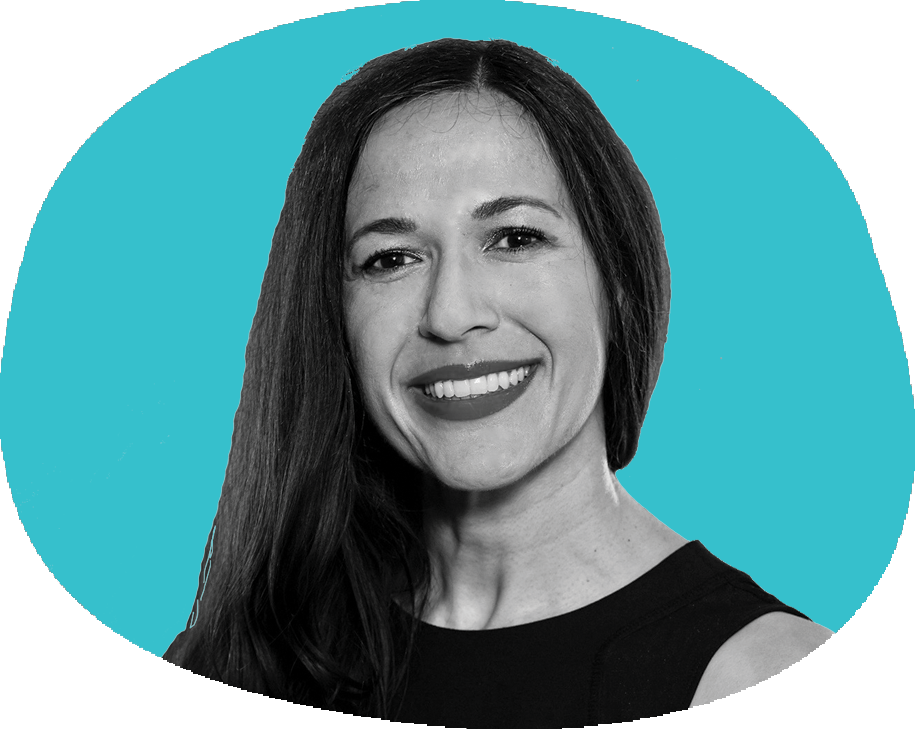
Sheila Singh, MD, PhD, is a pediatric neurosurgeon and a Joint Head of the School of Cancer & Pharmaceutical Sciences and Head of the Comprehensive Cancer Centre at King’s College London.
Dr. Singh previously served as Director of the Surgeon-Scientist Program, the Pediatric Brain Tumour Study Group, and the Centre for Discovery in Cancer Research (CDCR) at McMaster University.
Dr. Singh’s research focuses on aggressive primary brain tumors that typically affect children, including the dissection of the molecular mechanisms that drive tumor initiation. Her lab has established unique pipelines for discovery from human brain tumor samples and dissecting mechanisms that may be therapeutically targeted for this life-threatening condition. Her therapeutic areas of focus are tailored immunotherapies and molecular therapies, both for primary tumors and brain metastases. She has also established a unique clinical academic training program for surgeons, the McMaster Surgeon-Scientist Program.
Dr. Singh received her MD from McMaster University. She became an ACGT Research Fellow in 2024 as part of a cross-institution collaboration focused on synthetic T-cell therapy for recurrent pediatric brain tumors, specifically medulloblastoma and ependymoma.
Savio L.C. Woo, PhD
Council Chair Emeritus
Icahn School of Medicine at Mount Sinai, retired

Savio L.C. Woo, PhD, dedicated his career to the pursuit of fundamental science and technology development in gene and cell therapy, and to the translation of laboratory advances into direct patient benefits.
Dr. Woo is an internationally recognized expert in molecular human genetics and gene therapy. He received his PhD in biochemistry from the University of Washington, Seattle, in 1971 and completed a post-doctoral fellowship at the University of British Columbia in Vancouver, Canada. He joined the faculty at Baylor College of Medicine in Houston, becoming professor of cell biology (1984-1996) and founding director of its Center for Gene Therapy (1991-1995). He joined the faculty at the Mount Sinai School of Medicine in 1996.
Dr. Woo has held many prominent leadership positions in the field, including chairman of an NIH Study Section on Gene Therapy Vector Development and as president of the American Society for Gene & Cell Therapy (1999-2000). He has published more than 350 articles, reviews and book chapters.
George D. Yancopoulos, MD, PhD
Regeneron Pharmaceuticals
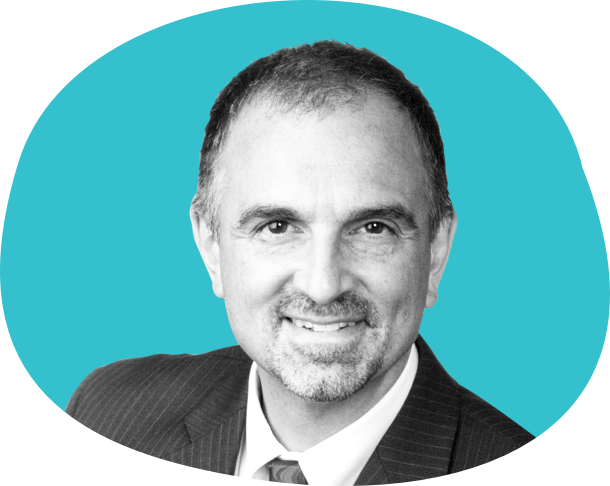
George D. Yancopoulos, MD, PhD, is co-founder, president and chief scientific officer of Regeneron Pharmaceuticals. He has led Regeneron alongside co-founder and CEO Len Schleifer, MD, PhD, since 1989 and served as a principal inventor and developer of Regeneron’s six FDA-approved drugs and foundational technologies, including the Trap technology VelociGene® and VelocImmune®.
Dr. Yancopoulos has been driven by science his entire life. He began his education at the Bronx High School of Science, received his MD and PhD from Columbia University and went on to become the 11th most highly cited scientist in the world in the 1990s.
In 2004, Dr. Yancopoulos was elected to be a member of the National Academy of Sciences.



